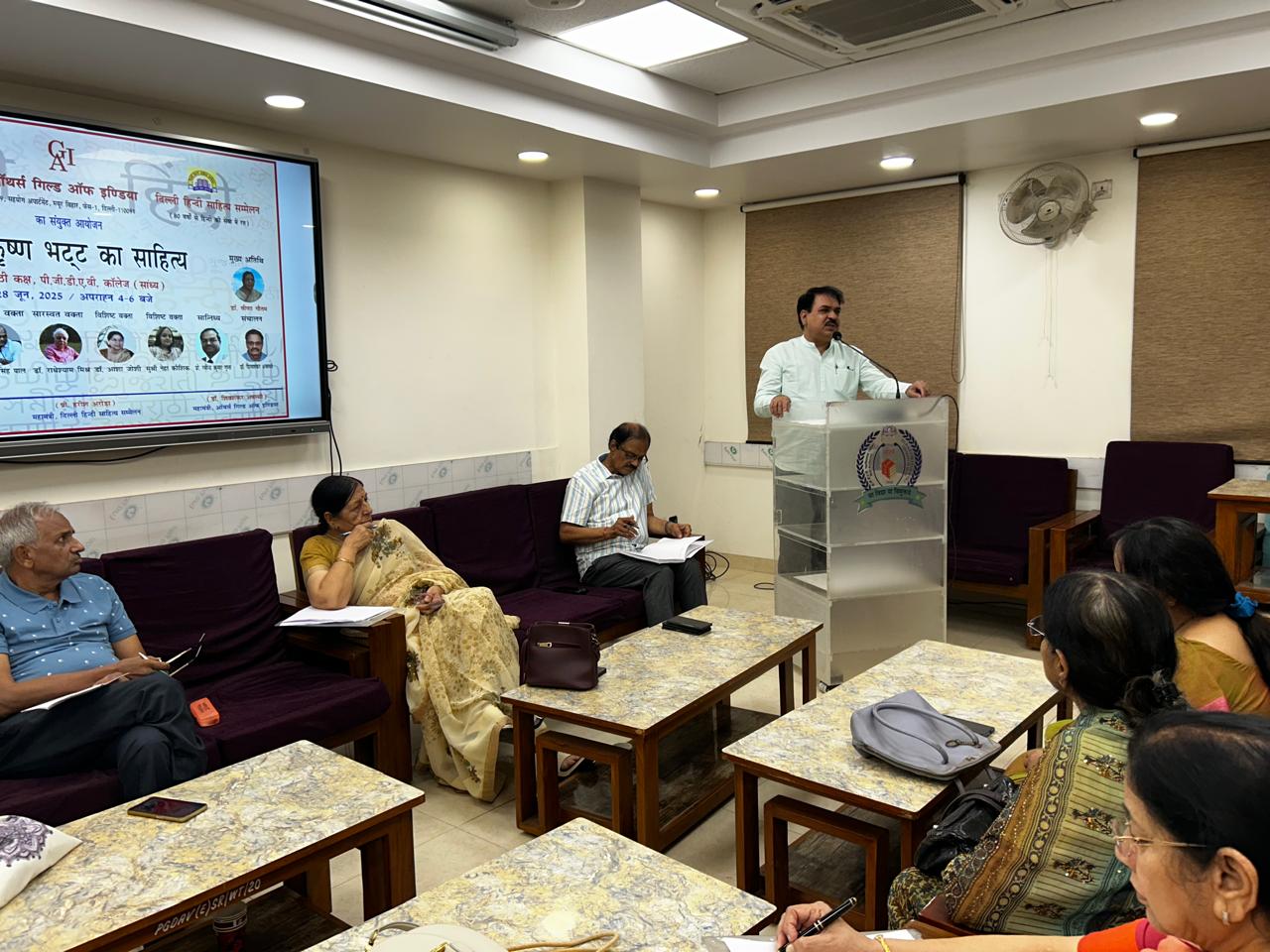Eminent scholars, writers, and academicians gather in New Delhi to reflect on Bhatt’s lasting impact on Hindi literature, journalism, and social reform.
New Delhi, A stimulating symposium titled “The Literature of Balakrishna Bhatt” was recently held at P.G.D.A.V. College (Evening), jointly organized by the Authors Guild of India and the Delhi Hindi Sahitya Sammelan. The event brought together leading intellectuals who explored various dimensions of Bhatt’s influence on Hindi literature, journalism, and social consciousness.
The symposium began with a welcome note by veteran journalist Dilip Chaube, who described Bhatt as a foundational figure in Indian journalism. He credited Bhatt’s bold and principled writing as the origin of today’s fearless reporting in the Hindi media landscape.
Delivering the keynote address, Prof. Harish Arora of the University of Delhi’s Hindi Department highlighted Bhatt’s literary foresight, historical depth, and social commitment. He portrayed Bhatt as a master craftsman of Hindi prose, whose integration of reason and emotion marked him as a trailblazer of the Bharatendu era.
In his remarks, Dr. Vijay Shankar Mishra likened Bhatt’s literary brilliance to that of Western intellectuals, calling him the “Edison of Hindi.” Dr. Radheshyam Mishra focused on the poetic richness of Bhatt’s prose, sharing vivid examples of his stylistic innovations in language.
Dr. Harisingh Pal, Secretary General of the Nagari Lipi Parishad, praised Bhatt for his fearless expression and groundbreaking contributions to Hindi journalism. He noted that Bhatt’s clarity of thought continues to shape modern-day media writing.
Addressing the audience, Dr. Asha Joshi examined Bhatt’s engagement with critical social issues like child marriage and population growth. She remarked that his essays exhibited a Kabir-like directness and moral clarity. Young author Neha Kaushik shed light on the cultural value of Bhatt’s translations, emphasizing their role in preserving and reshaping meaning beyond mere language.
Dr. Veena Gautam, the event’s chief guest, underlined the relevance of Bhatt’s ideas in the face of today’s social challenges and the Western cultural influence that was also prevalent during his era.
Chairing the session, Prof. Mukesh Agrawal described Bhatt’s literary vision as a reflection of the collective social conscience. He cited a poignant line from Bhatt’s celebrated work Venusanhar: “Khila gul Hind mein awargi ka” (“A flower of vagabondage bloomed in India”).
The symposium was coordinated by Dr. Shiv Shankar Awasthi, who acknowledged that while Bhatt’s writings may not always reach great artistic heights, their ideological depth and social awareness make him an essential figure in the development of modern Hindi prose and criticism. He described Bhatt as a visionary whose absence would leave a void in Hindi literary history.
The event was attended by a large number of prominent writers, linguists, and scholars from Delhi and neighboring regions. The program concluded with a formal vote of thanks presented by Mr. Satyapal Chawla.




